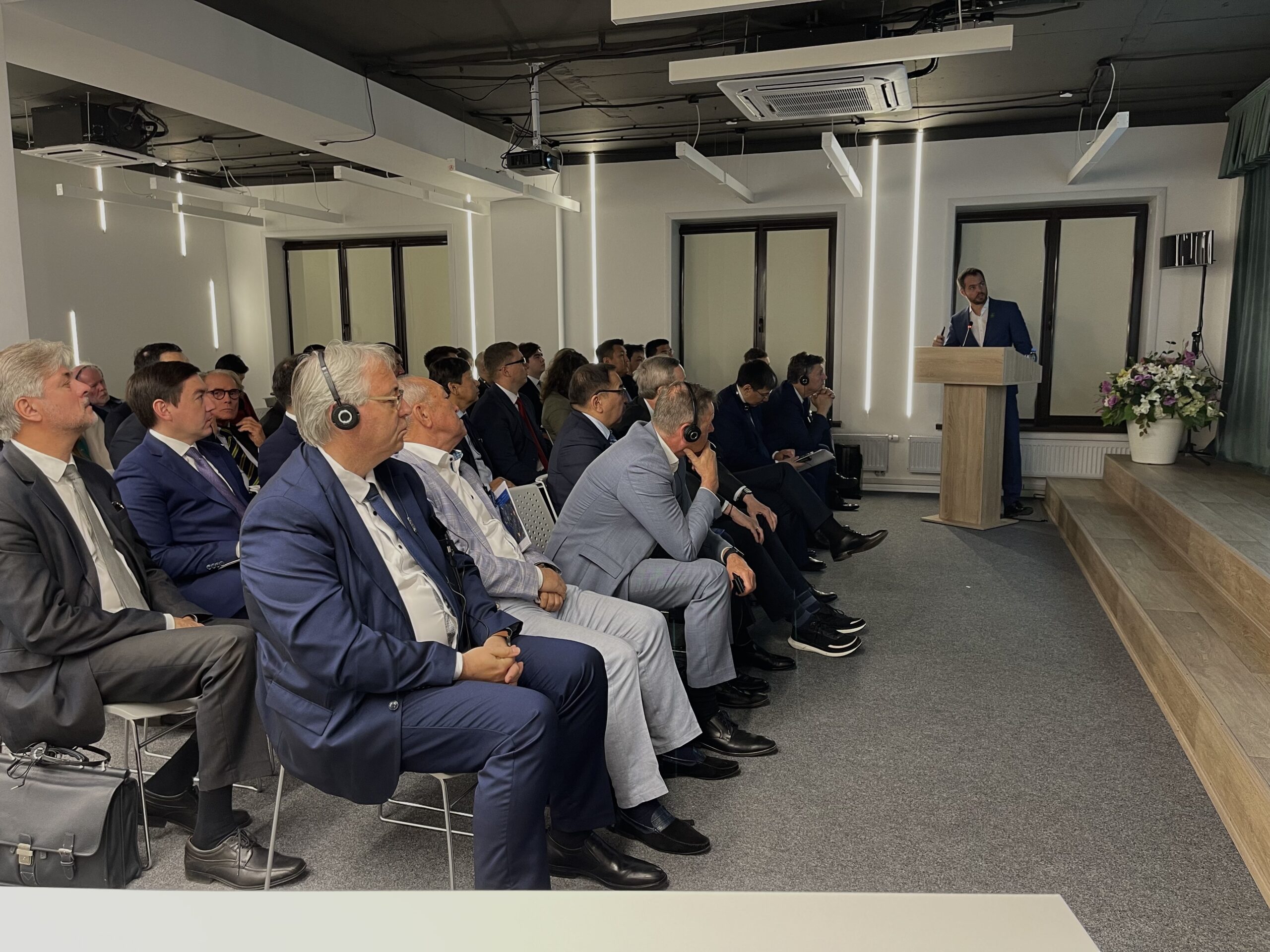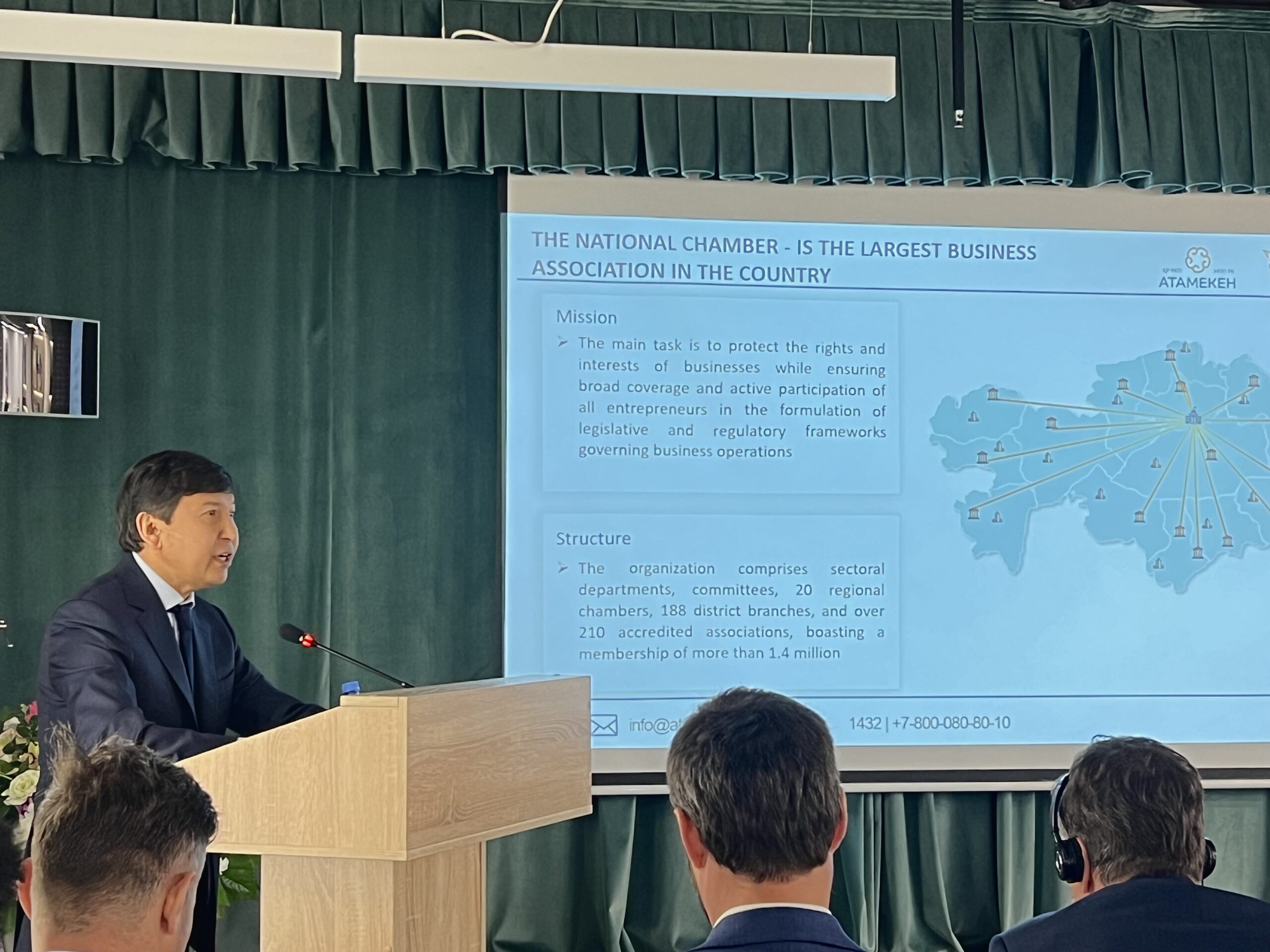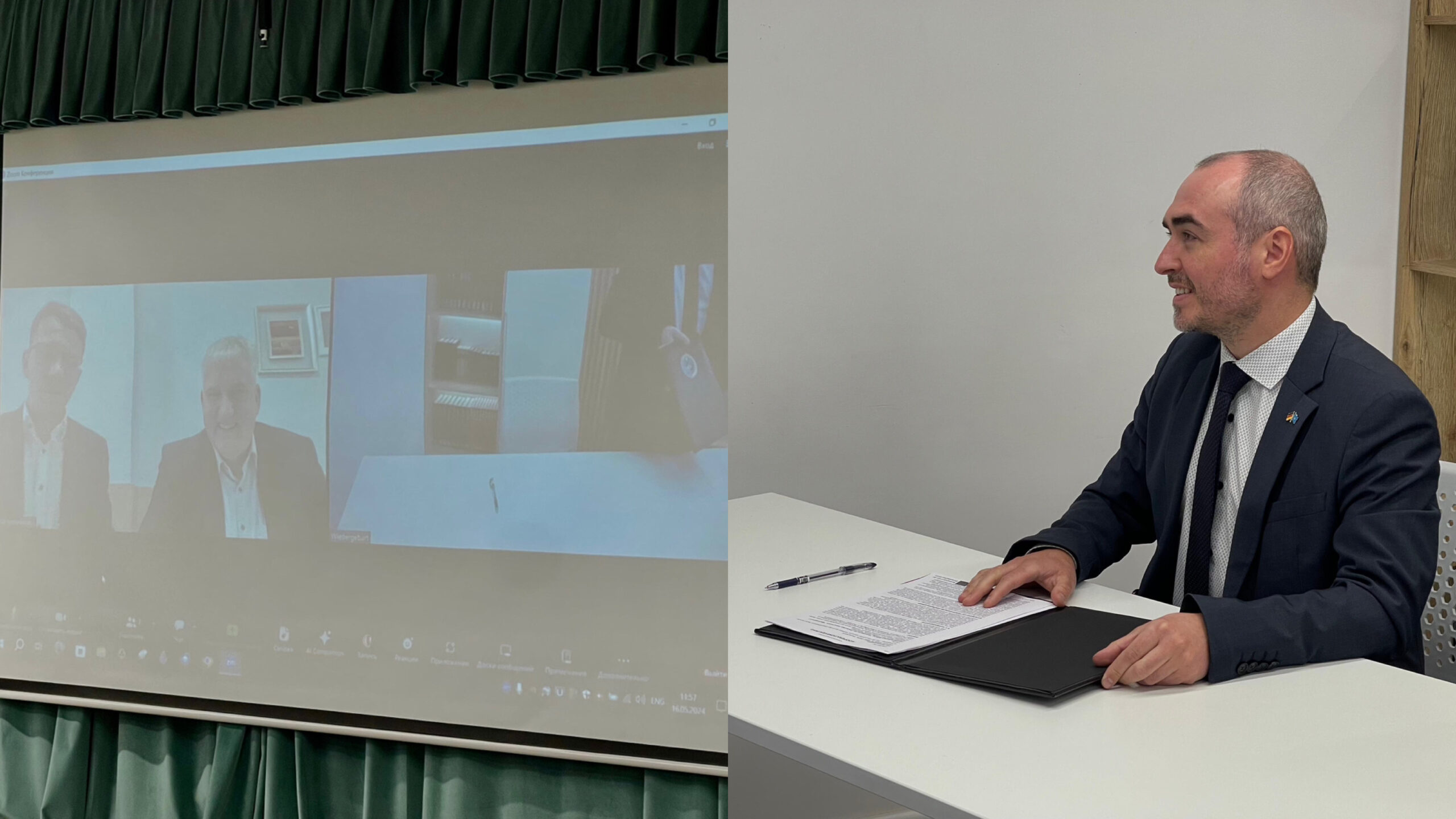ASTANA — Kazakh companies presented prospective investment projects to the German business delegation during a roundtable on May 16, highlighting the nation’s investment potential and initiatives to attract foreign direct investment at the Kazakh-German center in Astana.

Investment project presentations. Photo credit: The Astana Times
The event served as a networking platform, allowing participants to hold meetings with potential clients and business partners. The program included panel discussions and investment project presentations.
“It is impressive how strong the modernization process is ongoing. We have seen a range of technological cooperation formats including agriculture and aviation. I am very convinced that this will spark a lot of opportunities for cooperation,” said Wolfgang Niedermark, a member of the executive of the Federation of German Industries (BDI).
“The investment climate is improving. I can see a clear orientation towards new technologies and adaptation of the latest progress in Kazakhstan which makes it very attractive to international investors,” Niedermark added.
Eduard Kinsbruner, the director for Central Asia of the Eastern Committee of the German Economy, highlighted the innovative nature of technological presentations, noting their alignment with strategies in agriculture, new technologies and the green economy. He also mentioned the potential for cooperation on several of the showcased projects.
“Kazakhstan is the number one economy in Central Asia and number one trade and investment partner in the region for Germany,” said Kinsbruner.
From his perspective, Kazakhstan has significantly improved the strategic framework of modernization and diversification. “It still has room for improvement, but room for improvement is the biggest room in the world, so we will further work on modernization,” he added.
Strategic economic priorities and investment goals
Murat Karimsakov, the chairman of the board of the Chamber of International Commerce of Kazakhstan, outlined the nation’s ambitious economic goals and the collaborative efforts to achieve them.
“Doubling the GDP by 2029 requires attracting serious investments into the country. For the next five years, we need to attract approximately $30 billion in direct foreign investment annually,” he said.

Murat Karimsakov, chairman of the board of the Foreign Trade Chamber of Kazakhstan. Photo credit: The Astana Times
Karimsakov explained that to meet the targets and to increase the investment attractiveness of industries in Kazakhstan, they are focused on creating favorable investment conditions, such as developing a new tax code.
“Kazakhstan is opening up serious logistical possibilities with multimodal transportation and the active loading of the Middle Corridor. A new investment cycle in the manufacturing industry is also being launched,” Karimsakov added.
A recent presidential decree on economic liberalization signed on May 10, is set to enhance the business environment. “This decree ensures the inviolability of private property, free competition, the elimination of administrative barriers and a phased transition to market-based pricing. These fundamental principles will improve the country’s business infrastructure,” said Karimsakov.
Another priority is the launch of a digital product to control and monitor investment projects and the development of small and medium businesses (SMEs). According to Karimsakov, the successful implementation of such products will create more favorable conditions for German companies looking to expand in Kazakhstan.
Strengthening educational ties and technical expertise
During the event, in a step towards enhancing technical education for young people, the Kazakh Association of Germans Wiedergeburt and FAV Service gGmbH signed a cooperation agreement.

Executive director of the Kazakh Association of Germans Wiedergeburt, Dmitry Redler, and executive director of FAV Service gGmbH, Professor Heiko Schüler signing an agreement in online format. Photo credit: The Astana Times
Evgeny Bolgert, the member of the Senate, the upper house of the Kazakh Parliament, and chairman of the Board of Trustees of the Public Foundation Kazakh Association of Germans Wiedergeburt highlighted the newly signed agreement as one of the key developments in their efforts.
“We can develop cooperation in the technological sector, but we need more professionals to manage German technologies in Kazakhstan. Thus, we are developing education transfer for Kazakhstan and looking for different partners in Germany,” said Bolgert.
Speaking of Wiedergeburt Association, Bolgert outlined the organization’s role in fostering cultural, social and business relations between Kazakhstan and Germany.
“We created a business club five years ago through our fund to develop direct economic relations between Kazakhstan and Germany. Most actively, we work with Thuringia, a state in Germany known for its advancements in machinery and other economic sectors,” he said.
Bolgert highlighted Kazakhstan’s strategic priorities, which include logistics, water and resource management, agriculture and machinery, and expressed the willingness to cooperate with Germany, the world leader in logistics.
